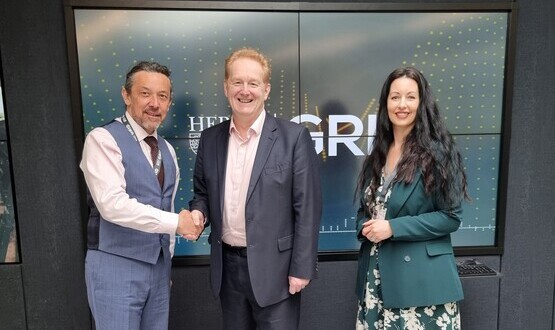Vision users told they cannot be forced to switch
- 29 September 2004
The National Vision User Group (NVUG), the independent body that represents users of InPractice Systems Vision primary care system has written to all Vision users to emphasise that there is no basis for anyone to force practices to switch away from using the Vision system. Published by the NVUG after a national meeting in early September the letter states it has been issued in light “of recent public concern from others in primary care computing about the National Programme for IT (NPfIT)". The letter reiterates that clear guidance issued by both the NPfIT and the joint GP IT committee – including the GPC and RCGP – that stresses GPs right, under the new GP contract, to choose between accredited systems. “At a local level, many practices are understandably concerned by perceived pressures from their PCOs (Primary Care Organisation) or LSPs (Local Service Providers). There are many rumours, some seemingly well founded, about imminent forced system changes. However, the position is clear: we have a commitment to a choice of system in the GP contract, and you cannot be forced to change from Vision," says the letter. Richard White, executive administrator of the NVUG told E-Health Insider that two main areas of concern had been highlighted by NVUG members: “The first would be that if a particular practice resides in an area provided over by an LSP who’s offering does not include Vision. There is a great deal of concern among practices that they will be forced to move away in the near future." White said that these concerns remained among Vision users despite the assurances issued by NPfIT and the joint GPC/RCGP IT Committee. “It’s an ongoing fear that if practice were to hold out [with their existing system] then financial support may be withdrawn from them for areas like maintenance." EHI understands that InPractice Systems Vision system has been selected as one of the primary care systems that will be offered in both the London and Southern clusters. The second concern that Vision users were reporting to the NVUG said White, though it varied from area to area, concerned being forced to move from stand alone practice systems to central server solutions. “At this stage we are continuing to work with InPractice Systems on both types of solution." Commenting on the National Audit Office (NAO) investigation into the NPfIT White said: “We have begun to make contact and received a favorable response from the NAO." Despite these concerns from users the NVUG letter stresses Vision practices are “well placed to continue meeting the challenges of the next few years, and that InPS is working to engage with all parties to maintain and develop this position". According to the letter discussions between the NVUG and InPractice Systems have agreed that despite “significant funding issues in many parts of the UK that effectively prevent system change”, choice still exists. “Under the existing contractual arrangements, no one can be forced to move from Vision." It adds that so far in 2004 there have been new Vision installations in England in all five Local Service Provider areas, with over 200 new installations across the whole of the UK. The NVUG letter also stresses that InPractice Systems are committed to continue developing and supporting the single Vision product, which will work in all four countries, and in all LSP areas, as both a practice-based or central-server (bureau) solution. InPractice Systems are also said by the NVUG to be developing and supporting all NPfIT requirements, and to have already delivered a Spine-compliant system that will be developed in line with all the various phases of the NPfIT releases. In Scotland meanwhile the company have agreed a programme to deliver the Scottish Enhanced Functionality requirements. Commenting on the timescales of NPfIT the letter says “It is clear that the timescale for many of the plans that our members are hearing about are based on years, not months, and practices should take this timescale into account when assessing their own situations." In conclusion the letter states “We will continue to work with the other user groups and professional bodies in all four countries, and through the JGP IT Committee, to ensure that our members have the promised choice of system and associated funding."



